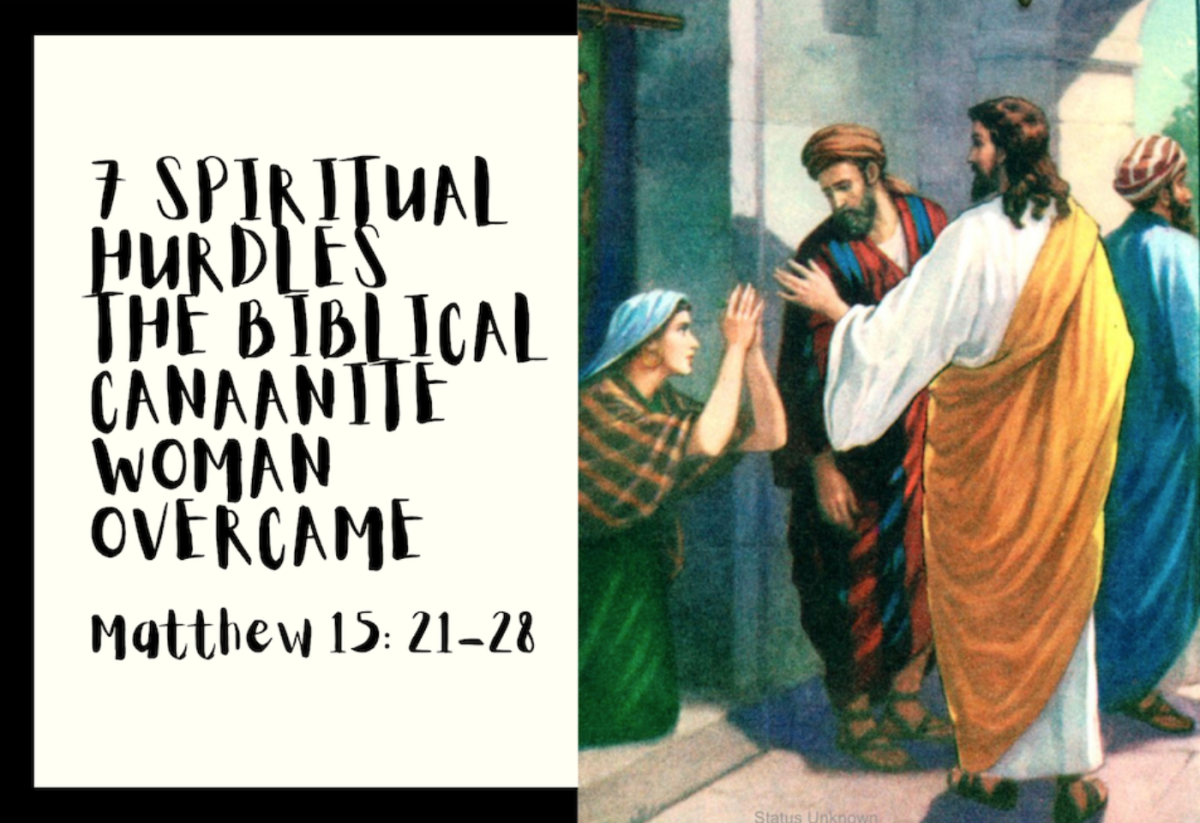Sentence Sermons 123---Steadfastness In Christian Living
Quotations on Steadfastness
The mind cannot wreck the life so long as the heart is steadfast. … In this day when there is so much of mind-worship, it is necessary that the heart should assert and defend its right to the throne. An arrogant mind has made many a life barren of faith and of joy because the heart has abdicated in its favor. …
The mind [that] cannot find God has no spiritual vision. But the mind can approve of the hearts discoveries and can defend that which has brought light into the soul. “I believe,” is the voice of the heart; “help thou mine unbelief” is the plea that the heart, filled with adoration, makes for the mind that doubts.
The world never needed Christ more than today; and it needs a full-statured Christ. No mere man, however perfect in his life or wise in his counsel, can meet the requirements of the civilization of this century. … Those who would rob Christ of His virgin birth, strip Him of the deity in which He is clothed, and condemn His body to the tomb, mistake the world’s greatest need. …
The world must have a God who is personal—near enough to hear, and willing to answer prayer.
When we love God with all the heart, with all the mind, with all the soul, and all the strength we will be anxious to know His will and ready to do it. Then, an inspired word will meet the want that is felt, and in that word we find a real Christ, the Son of a real God. We can then understand the fullness of His power, and the universality of His appeal, and the enduring code which He gave to the world.
His resurrection puts the divine stamp upon His work and confirms His promise to be our intercessor at the throne.
---William Jennings Bryan, Pittsburgh Press, Pittsburgh, Pa., April 8, 1922.
To be steadfast does not mean to be stubborn. To be stubborn means to be stationary, and to be stationary means to lack an inner power with which to resist, to defy and conquer influences from without. The steadfast man does what he knows he ought to do in spite of man and demons. Steadfastness is not primarily a physical quality. If it were so, some of us would be handicapped. It is not an intellectual quality, primarily, but it is a moral quality. It is not a question of how large our minds are but a question of how they are loaded.
---J.H. Burma, Dallas Morning News, Dallas, Texas, May 24, 1909.
Those whose faith is in God can remain steadfast when the hour of sorrow comes.
---George W. Truett, The Tuscaloosa News, Tuscaloosa, Ala., May 3, 1935.
“Be ye steadfast, unmovable, always abounding in the work of the Lord.” (1 Corinthians 15:58.)
Be unmovable–“rooted and grounded in love,” and “abound always in the work of the Lord.” Grow in grace and in the knowledge of Christ. To abound means to have a rich supply of grace. To work diligently for the Lord’s cause, with pleasure, with a heart that bounds because of its fullness of God. ... Such abundant service brings abundant fruit. No one serves God in vain. It makes happy himself and others. Sooner or later the great heavenly reward will be given to those who are “steadfast and unmovable and always abounding in the work of the Lord.”
---Christian S. Haman, Reading Eagle, Reading, Pa., Feb. 22, 1904.
Steadfastness results from wholehearted devotion. The church has too many frozen assets in the nature of halfhearted Christians. Every church has members that it would not do to classify as liabilities and yet they can hardly be called assets. They are frozen assets. They once made a good start in the Christian life and then something happened and they froze on the spot.
Their spiritual powers atrophied. Now they “stretch lame hands of faith and gather dust and chaff.” We must somehow cure this paralysis of faith. ...
The Christian keeps steady not by virtue of his own strength, but even more by virtue of the Omnipotence that sustains him. We are like the child that holds onto his father, but it is not the grip of the child but the grip of the father that gives steadiness and security.
---Arthur J. Hansen, Ogden Standard-Examiner, Ogden, Utah, Oct. 12, 1931.
[Read 1 Corinthians 15:58.] Steadfastness refers to the profound convictions of the supreme truths, as a bases if service. Unmovableness is a settled habit focused upon the settled conditions just mentioned. Permanent enthusiasm, that is always abounding in the work of the Lord, should characterize all Christian service. Your work will not be in vain in the Lord. This compensation is threefold: First, there is the giving of peace to the conscience; second, solidity to character; and third, the ultimate eternal reward of blessedness and glory.
---D.C. Hughes, Daily True American, Trenton, N.J., March 2, 1908.
Steadfastness is a most desirable quality in character, always admirable. It is that in human conduct which holds tenaciously to one purpose. Its befitting opposite is fickleness, a lamentable weakness, forever deplorable.
---G.F. Mickey, The Living Message, Morrillton, Ark., Nov. 26, 1925.
There are three essentials to steadfastness. They are intelligence, patience and experience. All of them are necessary, and with them there is no quaking of fear in the heart of the man who is endeavoring for steadfastness in the Lord.
Intelligence is a prime need. It is a duty to think, as well as to pray. Wavering on the part of believers in so many instances has come because so few have thought out their faith. Christ and the consequences that come from our relationship to Him ought to be the theme of long, earnest and careful thoughts on the part of the Christian.
The Psalmist says, "Wait on the Lord." (Psalms 27:14.) "Be still and see that I am God." (Psalms 46:10.) ...
There ought to be in each believer a personal knowledge of the things of Christ and a personal consciousness of the means of grace and the possession of it. As in mathematics, there must be a personal recognition of the truth of the problem presented and grasped by the mind, so in grace there must be the personal apprehension by the believer. He must see and know the truth of Christ. These three things abounding, there will come a steadfastness in the soul of the Christian.
---John M. Moore, Dallas Morning News, Dallas, Texas, Sept. 5, 1904.
Steadfastness is a high quality. ... You swear by the man who would rather risk life than swerve from what he thinks is right. ... The accommodating spirit that will stretch conscience and violate duty and right may be polite but not noble, may win temporary gain but have nothing in the end. ... Odds may be against a man of trust, but let him go on an do right. A Christian need not put aside his ambition in politics or business–he shall stay and practice right, ethics. ... The man who feels himself right can never be a coward. Loyalty and integrity are a man’s best defense. No part in church life is so commendable in character as steadfastness. Loyal Christians are a crown of beauty; they create success. Worldly honor and profit make alluring bids for faithfulness toward God. The Christian must be a hero against all false inducements, prefer God’s word.
---W.H. Myers, Reading Eagle, Reading, Pa., Oct. 2, 1905.
“Be ye steadfast, unmovable, always abounding in the work of the Lord.” (1 Corinthians 15:58.) God grant that we may live with the thought of eternity in our minds–the eternal life and the eternal reward of faithful service, that while opportunity is ours we may be “steadfast and always abounding in the work of the Lord,” knowing that “our labor is not in vain with the Lord.”
---William P. Orrick, Reading Eagle, Reading, Pa., Oct. 14, 1901.
"Be ye steadfast." (1 Corinthians 15:58.) The Greek for "Be ye steadfast" contains just two words: hedraio ginesthe. It is the present middle imperative of ginomai, to become, and the adjective hedraioi from hedra (seat) and so sitting, stationary, firm, immovable. The tense expresses continuous action and so means: "Keep on becoming firm." It is a continuous process that will never cease. The elements of instability are always present that tend to unsettle those who ought to have firm foundations for their faith....
One way to remain firm is to refuse to be moved. ... It calls for high courage under attack to hold fast the lines for Christ. Each one has his part of the line to hold firm. Each one has influence on others. There is a contagion of courage as well as of cowardice. Paul sounds a bugle note for courage.
---A.T. Robertson, Baptist Message, Shreveport, La., Jan. 9, 1930.
Steadfastness is an ever present duty necessary to your growth in piety and strength, and to your full maturity in all the virtues in the Christian life. No plant can thrive that is being perpetually plucked up and transplanted; nor can the Christian grow and prosper unless he is rooted and grounded deep in the truth. One of the most frequent injunctions of the Scriptures is that we be steadfast. Moreover, steadfastness is an important element in the matter of Christian service. The value of a lighthouse is not in the ever shining light, but the mariner can rely upon it because he always finds it shining in the same place. And so our Christian testimony must be stable and reliable. The Christian who is unstable, vacillating, erratic and changeful gives forth an uncertain testimony and is not to be trusted.
---C.P. Roney, The Baptist Chronicle, Alexandria, La., Jan. 9, 1913.
Steadfast spiritual-mindedness [is] the calm understanding which refuses to rise to spiritual heights only to plunge to the depths of moral opinion. A genuine return to righteousness can heal a troubled world and ensure lasting freedom and peace.
—Gordon H. Smith, Milwaukee Sentinel, Milwaukee, Wis., May 20, 1955.
There is a sharp distinction between stability or steadfastness and obstinacy of character. Steadfastness of the proper sort is the ability to stand fast in a good cause till a change for the better can be brought about. Most of our present ills are due to vacillation and running after new fads and notions, or getting tired of performing legitimate duty. There are too many men like children in the world–easily tired of anything and always looking for a change. They have no fixed purpose in business or anything else. ...
The main thing to give stability is a predominant desire in some one direction, and for the best thing. To secure this, follow the Bible, set your affections on things above; look not backward, but am high so that the will may apply endeavor straight in the direction of righteousness. The man of stability affects his fellowmen for good, whereas instability discourages others who may be contemplating starting on the right road.
—J.L. Withrow, Boston Evening Transcript, Boston, Mass., Nov. 12, 1900.
God's promises hold good as long as we are loyal and steadfast steadfast, not stuckfast. There is lots of difference between "steadfast" and "stuckfast." Steadfast means abounding in good works.
---Earl Gray, Lake Charles American Press, Lake Charles, La., July 11, 1921.
Steadfastness, the ability and willingness to see a thing through endurance, patience—these are the qualifications of fitness for the kingdom of God, or at least if a man lacks these things he is not fit for the kingdom.
There is something inexorable, something awe-inspiring and fear-begetting about the exacting cost of discipleship when you come to study it. Following Jesus, fitness for the kingdom—what price? A certain man said, “I will follow thee whithersoever thou goest.” And Jesus said, “The foxes have holes, and the birds of the heaven have nests, but the Son of Man hath not where to lay his head.” Then Jesus said to another, “Follow me,” but he said, “Lord, suffer me first to go and bury my father.” What more laudable or more natural. What a callous answer the Master gives. How harsh, how exacting: “Leave the dead to bury their own dead, but go thou and publish abroad the kingdom of God.” Still another said, “I will follow thee, Lord, but first suffer me to bid farewell to them that are at my house, but Jesus said unto him, ‘No man having put his hand to the plow and looking backward is fit for the kingdom of God.’”
There is something stern and unyielding about that. The great crises of life, birth, marriage, divorce, farewell, death may come but none of these dare move us or swerve us from the path of duty. Who dares to say a thing like that? Not I, not you, but Jesus says, “No man having put his hand to the plow and looking back is fit.”
Let each of us examine himself. How often have we taken the easiest way? How often have we said we couldn’t do it? How frequently we have excused ourselves for running away by saying we couldn’t stand it any longer? When a burden grows heavy, when an obligation bears down upon us, when the collar galls the shoulder, when the shoulders bend beneath the load it is human nature to get out from under. … One of the most beneficial lessons is too often ignored. That is the lesson of “carrying on.” … “Stand, and having done all to stand.” That is not a general order from military headquarters; that is a New Testament quotation. Jesus set his face to go to Jerusalem. Yet , more than this we are told: “He steadfastly set his face to go to Jerusalem.”
How miserably and abominably weak and spineless are so many of our puny excuses for not doing our duty. How childish and how contemptible our subterfuges for running away from our unfinished tasks. How easy to blame the circumstances, the times or the conditions around us. How simple to throw off our responsibility by pleading it was impossible. Frankly, the trouble is in our weakness. We put our hand to the plow and look back. We have not suffered unto blood resisting against sin. “No man, having put his hand to the plow and looking back is fit for the kingdom of God.”
---G. Hubert Steed, Evening Independent, St. Petersburg, Fla., Oct. 28, 1929.
[Acts 2:41-47; 4:32-35; 5:2-4.] When the gospel is preached in power and a new interest in religion begins to develop, it may burn like a conflagration and spread through the community in irresistible fervency and contagion. It touches the deepest religious needs and instinct in people and may draw and convert them by the thousands. … “The Lord added daily to the church such as were being saved.” The great revival was followed by steady daily growth. … A great danger attending it is that it will be followed by a reaction and collapse. The fire will burn out like a blaze of straw and leave dead ashes; the flood will sweep everything before it and then leave a dry channel strewn with wreckage. The revival settled down into a steady fire that kept the church warm and active; it became a constant stream that watered the church the year through. A steady, continuous growth in a church is better than a sudden enlargement. …
The converts themselves turned out to be steadfast. They continued in the apostles’ doctrine and fellowship. They were not red hot in their new zeal at first and then presently grew cold and became backsliders, but they kept warm and enthusiastic. Their new faith was not a passing whim but a deep-seated change of mind and heart that went down through all the fibers of their being. We ought to have fundamental convictions on the subject of religion that no storm of doubt or opposition can disturb. They were also steadfast in their fellowship. Their common faith bound them into a common life of good will. There were no factions and strifes among them, no jealousies and backbiting. A great enthusiasm swallowed up all petty differences and melted them into unity. It is a pitiful thing when members of the same church develop little factions and cliques and cherish ill feelings. Nothing will so quickly blight a church with barrenness and make it a disgrace in the community. When a church sees the vision of the kingdom of God in the world and gives itself to this great service, it will forget all these petty and mean things and be absorbed and lost in its great life. All great things tend to lift us up and make us great, and small things tend to make us small. The kingdom of God is a great mountain that as we climb it imparts to us some of its own majesty and makes us great. …
The spirit of charity and fellowship … is a rule for us, and we should strive to grow … in this grace. … Every church member should do with his might what he is given to do.
---James H. Snowden, Pittsburgh Gazette Times, Pittsburgh, Pa., Aug. 17, 1918.
[1 Corinthians 18:50-58.] If a man die shall he live again? This question of the ages has become an urgent question of the hour. Always lying latent in the universal human heart and at a moment’s flashing into consciousness, at times it breaks up through all the crusts of life in eruptive power. … The world has become an enormous volcano, vomiting fire and blood all over the continents. … Is the hope of immortality planted in the very foundation of our being a true instinct and does it really give us a glimpse of “the green mountain top of a far new world”? According to our answer to this question will our world be irradiated with central glory or be dust and ashes at the core. …
Faith in immortality is one of the fundamental doctrines of Scripture running through it like strains of song that in the end gather up into a great chorus of victory and joy. Paul was sure of this faith, and he was a man of logical mind and power who stood close to the cornerstone of the resurrection of Christ. “Death is swallowed up in victory.” He exultingly exclaims, “O death, where is thy victory? O death, where is thy sting?” Death seems victor now, as it comes crashing into our lives, snatching away our loved ones and leaving us in our heartbreaking loss and loneliness. But its day is coming. When the resurrection restores all the redeemed to the Father’s home, death itself shall be slain. Never shall it set foot within the heavenly city to plant a cemetery by its wall or send a funeral through its golden streets. What this victory will be we cannot now know or dream. Paul in this same chapter intimates that the old fleshly body will bear some such relation to the new spiritual body as a seed to its flower. The seed gives little promise of the glorious blossom into which it will bloom, and the present body of flesh that so often hangs as a weight upon the spirit hides the secret of a still more marvelous transformation. As the slow-crawling, shaggy caterpillar is to the swift winged, gorgeously arrayed butterfly, so is the “muddy vesture of decay” of this present body to the purity and power and beauty of the spiritual body with which we shall be clothed upon. Whatever the nature of the change when corruption has been put off and incorruption has been put on in life will be infinitely freer and richer and sweeter.
From this high note of victory Paul suddenly drops into a quiet word of admonition, “Wherefore, my beloved brethren, be ye steadfast, unmovable, always abounding in the work of the Lord, forasmuch as ye know that your labor is not in vain in the Lord.” The eloquent strain of argument issues in this plain, practical conclusion. Christian faith in the resurrection is not an impracticable theory of a rose-colored mist of speculation, but it is a truth that lays hold of the daily life and shapes all our thoughts and deeds. Having this hope in our hearts we are to seize our work with our hands, and do with our might what we are given to do. We are to stand steadfast and unmovable under all the stress and storm of temptation and trial and discouragement, ever seeing and following the heavenly vision. Much of our labor in this life seems vain. The seed does not always yield a harvest; our work does not always bring a profit and sometimes business ends in bankruptcy. But there is one blessed certainty: we know that our labor in the Lord is not vain, and not a cup of cold water given in His name shall lose its reward. Let immortality ever sing its song in our hearts, especially when we stand by the graves of our dead or face the shadows of the sunset. Let come what will, the resurrection hope should bind us to our task, inspire our souls with victory and make us faithful even unto death.
---James H. Snowden, Pittsburgh Gazette Times, Pittsburgh, Pa., March 30, 1918.
By imitating the example of [Christ’s] holy sacrifice we shall grow into that glorious perfection of the Father manifested in His only begotten Son. .. Through the intellectual and moral power of religion and obedience to its commands man can relatively climb undreamed heights of spiritual manhood, and by the evolution of his immortal soul in Christ win that glorious crown of destiny which the heavenly Father has willed all born of woman should through obedience acquire perfection. ... We as Christians have a divinely stirring within us the source of a glorious power to “press toward the mark for the prize;” a life complete in its fulfillment of that end which God intended it to attain, to be perfect in obedience to the supreme law of its existence, even as its Creator is perfect. ...
Religion leads us back from worldliness to self-recollection and gives to souls fevered with sordid desires a quickening principle of a higher and nobler life; inspiring intellect with truth, and the heart with a pure an exalted life. It animates conscience with a supreme sense of duty and places thought in juxtaposition with the will of God, clothing every aspiration with a purifying virtue, thus leading all the faculties of our being upward and onward toward perfection. ...
There is no real happiness apart from that which comprehends His love and finds its supreme good by a steadfast devotedness to the precepts of His law. ... Religion is a life, a state, which calls into operation all the spiritual potentialities of their glorious nature and through temptation, sorrow and suffering crowns them at last with victory over the world and self.
Christ came upon the earth to save sinners, giving them a power of endless life. Revealing the character of God, He made it possible for men to conform to that perfect original. In His Gospel He lays down a code of morals, so sublime, that if we would absorb them into thought and action we should fulfill while here our destiny. ...
To grow into the stature and fulness of Christ, in other words, to become a Christ-man, is the design for which we are endowed with certain faculties. Man is preeminently a moral being. This is his nature and the path of his life winds toward the perfection of those qualities which constitute the essence of his spiritual life. His true happiness consists in bringing himself into relation, into union with God. God is holy, the source of all perfection. In the heart of man He has placed a deep and abiding consciousness of right and wrong. At every turn duty confronts him; on one side lies goodness, on the other evil, with an inward voice ever commanding with divine authority to discriminate between them, urging the choice that which is lawful and protesting against sin, every thought and action being approved or condemned by this inward monitor. There is not a man or woman living who does not feel that conforming to the will of God is the paramount duty of life. The soul is the great battleground where the material and the corruptible strive in ceaseless warfare against the spiritual and eternal. By submitting to the lower instincts of our nature we are destroying that which is highest and best and wilfully striving (unconsciously, it may be) to thwart the great end which the heavenly Father’s marvelous love would have us attain. ...
The highest, purest, noblest gift in heaven or earth is character–character which finds its likeness in the Christ, conferring a joy which the angels wonder at, and fencing the soul with impregnable battlements of Godlike moral rectitude, from which the concentrated furies and power of hell are hurled back in confusion as the ocean’s waves slam the mighty walls of a rock-bound shore. Thus true happiness comes from being, not having; from the life within, not influence without. ...
Without a living faith in God or a personal union with Him, the conscience loses its power to govern and guide, but religion clothes it with exceeding strength by revealing to man the source of those magnificent moral attributes with which he is endowed, thus giving to that “still small voice” within the soul an infinite worth. ... Virtue is the beginning and the end of holiness, the narrow road to perfection. ...
Allow the character of your heavenly Father as revealed by Jesus Christ to stand before you as the goal of all attainment. Religion gives us an ideal and an incentive to reach it. By contemplating and really loving this excellence is to be inspired by it. The Christian man is always conscious of a divine presence. In every phase of his life he marks the guidance of God. He beholds His handiwork in every flower of the field. The hosts of shining stars as they whirl through space declare His majesty, and in the phenomena of nature he discerns a living expression of His glory. Thus by contemplating and adoring His handiwork in the natural world without and the spiritual world within, a Christian is given grace to subdue all things unto the one great end of moral growth. True religion ... is the life giving breath of the spirit of God which rules, not certain relations, but all correspondence of the heart, soul and body with the Creator and with fellow men.
There is no limitation to the exercise of the intellect, yet without a moral principle to guide and enlighten its research, there can be no advance in the path of truth. ... Religion gives to intellect the added power of analysis and discrimination, a medium whereby we discern truth. It places the mentality of man in communion with infinite knowledge. “Gifted with the eye of the spirit,” the glory of God streams upon the page of history, and every department of scientific research testifies to His perfection and wondrous love. The mind of the most brilliant scholar will only see in phenomena natural results. Religion alone has power to permeate his work with magnificent meaning. There is a hidden wisdom only revealed to the child of a “new birth” who has had a special and individual revelation of the Father.
Religion crowns the intellect with a deep insight into the mysteries of life. The earth, sea and sky, the complex organism of society, the depths of human nature, the history of nations, all these things shine with a new luster, and flood the mind with profound meaning. ... In everything we see God. Under the beneficent influence of His Spirit our faculity of comprehension is robed with sacredness and grandeur, for He calls it forth to a glorious communion and expansion, until one day it shall fully understand the low which now passeth knowledge.
True religion above all things forms an upright mind; it elevates the judgment above prejudice, and creates a noble purpose to receive knowledge through all legitimate channels. It endows a man with sincerity and a quality of fair dealing which no university can teach. It breaks down the barriers of set opinions and destroys the bitterness between sects and parties. It opens the heart to conviction and a ready candor to confess error. The intellect was never intended to be bound to set rules or encompassed with man-made regulation. Its destiny is an upward, onward march toward truth, and true religion fashions all our inquiries and misgivings with reverence and ever leads us to the feet of Him, “with whom there is no variableness nor shadow of turning.”
—Henry Knott, Branford Opinion, Branford, Ct., Sept. 5, 1903.
“Let us hold fast the profession of our faith without wavering, for He is faithful that promised.” (Hebews 10:23.) Every Christian should be a light to lead others on the way of truth and life. If his faith be a true faith he must needs testify of God’s saving grace and mercy. Such faith will reveal itself in a pure and godly life and in deeds of kindness and love towards all men, and the world must recognize the power and beauty of Christ’s teachings in the lives of His followers. If we avail ourselves of the means of grace which Christ has placed within our reach there must come to us the faith which feels to a certainty, “I know that my Redeemer liveth.” and as our knowledge of Him increases and we draw ever nearer and nearer to Him we shall find that as He enters more and more into our lives, He brings also rest and peace, a feeling of confidence and security such as naught else can give, and our greatest joy will be in glorifying and serving Him; in rendering loving obedience to His will and commandments, for this, too, must be a part of true faith. He Himself has said, “My sheep know and hear my voice and follow me.” But our obedience must not be forced; it must come from a real desire to do His will and follow Him. Sometimes it may seem hard to follow, for those who go with Him must bear the cross; His portion here upon earth, the portion of each one who follows in His footsteps. But through it all we have the blessed assurance that He is with us and is leading us all the way; that He is the way, the light, our strength and shield, and that we shall not faint nor grow weary, if we will but remain steadfast in faith. True there is much along the way that may tempt and weaken us and cause us to waver. Satan is ever prowling about among the people of God seeking whom he may devour, or in gentler guise seeking to lead astray and destroy. The world, too, laughs, mocks and points the finger of scorn at those who go not her ways; yes, even hates and persecutes them because they will have naught of her. She will seek to rob us of our faith and tempt us to partake of her joys. Or, we may find resistance to the profession of faith on the part of those who are daily about us, even from the members of our own household. But by far the greatest enemy of our faith is the evil within ourselves–the heart, full of sin and deceitful above all things; the flesh, weak and waging continual war with the spirit. To remain steadfast in the Lord in the fact of such strong opposition is not within our power; we must receive from above the needed strength, that we may hold fast to the treasure, the pearl of great price which is given us. Let prayer, therefore, be ever in your hearts; pray at all times and seasons and places pray without ceasing. Seek often the solitude of your chamber and speak with your God, for His eye penetrates into the secret places, and by the communion with Him shall your faith be strengthened and renewed. Pray ever that your faith may grow and bring forth good fruit, keep in mind the promises given by the Lord God. ... The example which the Christian gives, the life he lives, is of the greatest important in influencing those with whom he comes in contact. If we live not up to our professions the world will point the finger of scorn; if we forsake the assembly of the believers and follow the broad way, ignoring the vows of faithfulness to God we may cause the downfall of other weaker souls who are striving upward on the narrow way; we may bring sorrow and grief upon those who love us and are concerned about the welfare of our souls. But if we go forth into the world bearing aloft the banner of Christ, to which we have sworn allegiance, fighting bravely and well the good fight of faith, testifying in our lives at all times of Him in whom we believe, and when occasion offers, hesitating not to speak for Him and His kingdom, ministering to the poor and the sock and the sorrowful in His name–in fact, making our whole lives to speak of Him and praise His name; then must the world see and know that He is God, and must feel the power which goes out from Him; then may we help a worker brother to go onward and upward and not falter by the way, but to press forward till Zion be reached and the rest be won. We who know Him and have received Him into our hearts can feel that we are upon the heights and it should be our aim to remain there ever, to be firm to our faith, to remain steadfast to the end, till death and the earthly pilgrimage and bring us unto our reward.
—J.J. Kuendig, Reading Eagle, Reading, Pa., April 18, 1902.
There is the power of speech. Of all the edged tools that God has given us with which to hew out our pathway in life, this is the most subtle and dangerous. One little sentence has power to blast the whole life of your friend or neighbor, while on the other hand, one little word of encouragement may rekindle the fires of ambition in the heart of a discouraged brother and bring him to a life of success. ..
The power of example [is a] power so patent for good or evil in shaping the life of our associates. ... Shall we let our selfish appetites and desires control us? Nay! Shall we not rather act the hero’s part, and, like the Son of God, restrain ourselves, that our fellowmen may be helped and lifted up? ...
Before us is the example of Christ, in His humility, and in His power. He says to every man, “If you would be my disciple, take up your cross and follow me. Follow my example.” What a mighty task is this which He sets before us! Shall we be equal to it? If we attempt it in our own wisdom and strength, nothing but disappointment and failure await us. But I am so glad that He who has set the problem for us to work has also given us the key to its solution. Here it is: “Howbeit when He the spirit of truth is come He will guide you into all truth.” A steadfast faith in God and implicit reliance upon the Holy Spirit for guidance will enable us to take the most humble acts of life and clothe them with the shining raiment of loving and helpful self-sacrifice, will enable us to use the power which God has given us to separate the tares of the sin from the wheat of righteousness in the life of our associates. To lift our lives into the sunlight of God’s presence, where we shall live and grow in peace and happiness until we cross the border into that life where there is no sorrow, no sickness, no pain, no parting and no death. May God in His infinite mercy, grant this portion to us all.
—Silas Gault, Pittsburgh Press, Pittsburgh, Pa., Aug. 18, 1902.
There are things in life of which we should never let go no matter what it costs to hold on. Paul admonished the Christians of his day to “hold fast that which is good.”
There is a story of Rudyard Kipling to the effect that when he was a boy of 12 years he was on an ocean trip with his father, Lockwood Kipling, the artist. The captain of the ship came to the elder Kipling in great consternation and said, “Mr. Kipling, Mr. Kipling, your boy has climbed onto the yardarm, and if he lets go he will be drowned.”
Mr. Kipling did not seem greatly perturbed. He replied simply: “But he won’t let do.” The man who would be truly Christian must have that sort of tenacity.
But if a man is to hold the things that are good in life, he must be upheld himself, and he must have laid hold of something stronger than himself. Hence the greatest appear that can be made to men is to lay hold on Christ. We think of Him as an anchor or a rock—a great support, sure and steadfast, near at hand in every emergency to hold us up and to give us power to hold to all in life that is good.
---William E. Gilroy, San Jose News, San Jose, Calif., March 9, 1929.
When we begin to drift, it will not be long until we find ourselves in a sea of chaos. Many people find it difficult to make up their minds about a multitude of issues.
Some have taken the position that anything that is accepted as respectable in our society is not morally wrong. Others seem to feel that it's all right to do as you please as long as you don't get caught. Secrecy will not purge some ugly deed any more than respectability will excuse our wrongs.
I know a man who sees absolutely nothing morally wrong in gambling as long as the stakes are low. A bet is a bet! It may be a nickel wager or it may be for a million dollars. The amount will not alter the evil involved.
Suppose you drive down the street and see a sign that indicates the speed limit is 30 miles per hour. If you drive 60 miles per hour, you are speeding. You are also speeding if you drive 40 miles per hour.
I know a host of people who argue that there is nothing wrong with social drinking.
Then there are the multitudes who live on the fence. They are not sure that gambling and drinking are wrong, but they cannot make up their minds. They have no strong convictions one way or another. These indifferent multitudes, these who seem to be so weak that they cannot make up their minds, will never make a worthy mark upon civilization. They will never point the way to decency, happiness and wholesome living. You may be sure that the gallant soldiers who lead us must have strong convictions about right and wrong.
There is a difference between stubbornness and steadfastness. A person's convictions must be clear as well as strong. A stubborn man can hold to convictions that serve his own purposes. They can be fortified with prejudice and bigotry as well as some noble purpose. Our convictions must be rooted in what we believe to be God's will. Many times our convictions are grounded in what we want instead of what we need.
A steadfast person is fortified with noble reasons for his convictions. He is not determined because of his personal gain, but because of his commitment to right living.
---Robert V. Ozment, The Atlanta Constitution, Atlanta, Ga., July 19, 1962.
Steadfastness means firmly established, not fickle or wavering. ... Steadfastness stands for progression; no limit is placed on the realm of truth; no fence is built around the field of science.
---Joseph W. Booth, Millennial Star, Liverpool, England, April 23, 1925.
Let each ask himself what his religion is worth. If it is not of more value than life itself, he cannot hope to remain steadfast to the end. ... To serve God acceptably, we must come before Him with open hearts, and look to Him alone. It is with Him we are to make our reckoning and not with man.
—Karl G. Maeser, Territorial Enquirer, Provo, Utah, March 2, 1886.








